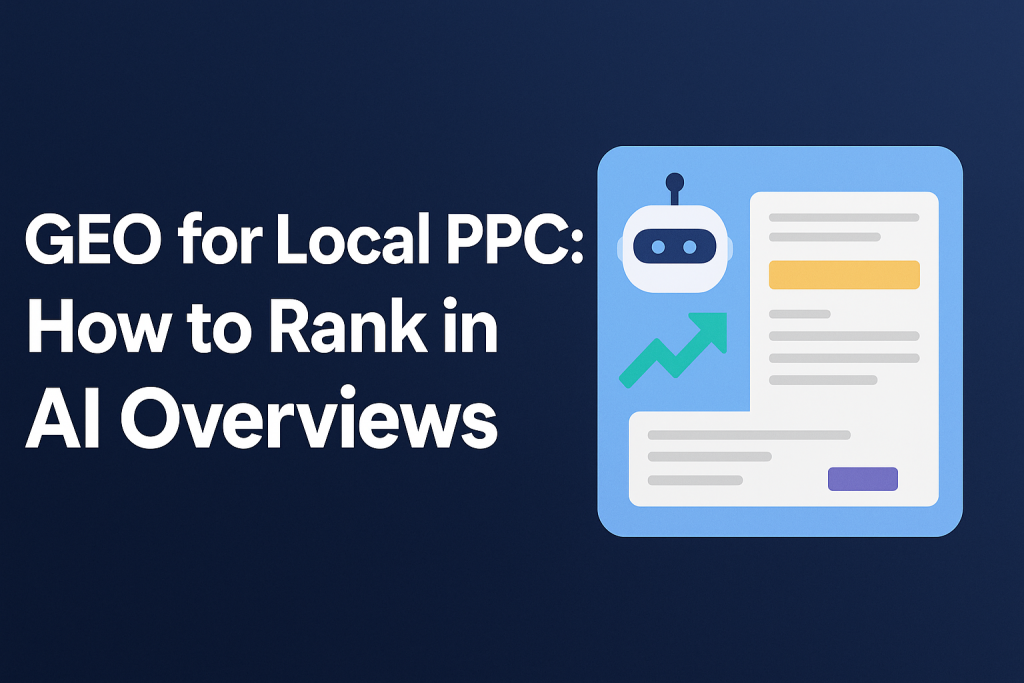
Want to Show Up in AI Overviews? Use This GEO Playbook for Local PPC
Google’s AI Overviews are rewriting the rules of local search—and if your PPC content isn’t structured for AI, you’re invisible.
Welcome to the next evolution of local advertising. As Google’s SGE, Gemini, ChatGPT, and Bing Copilot push AI-generated answers to the top of the search page, your Google Ads copy and landing pages must adapt to win placement. This post introduces Generative Experience Optimization (GEO): a new framework that helps your local PPC campaigns appear inside AI Overviews.
What Is Generative Experience Optimization (GEO)?
Generative Experience Optimization (GEO) is the process of structuring your PPC campaigns, ad copy, landing pages, and schema in a way that increases your visibility inside AI-generated search results.
Instead of ranking in the classic 10-blue-link format, GEO helps your business:
- Get quoted inside Gemini and SGE overviews
- Surface in ChatGPT and Bing summaries
- Feed structured content to LLMs for answer-level visibility
GEO is not traditional SEO. It’s not just about backlinks and keywords—it’s about teaching the AI to understand and elevate your message.
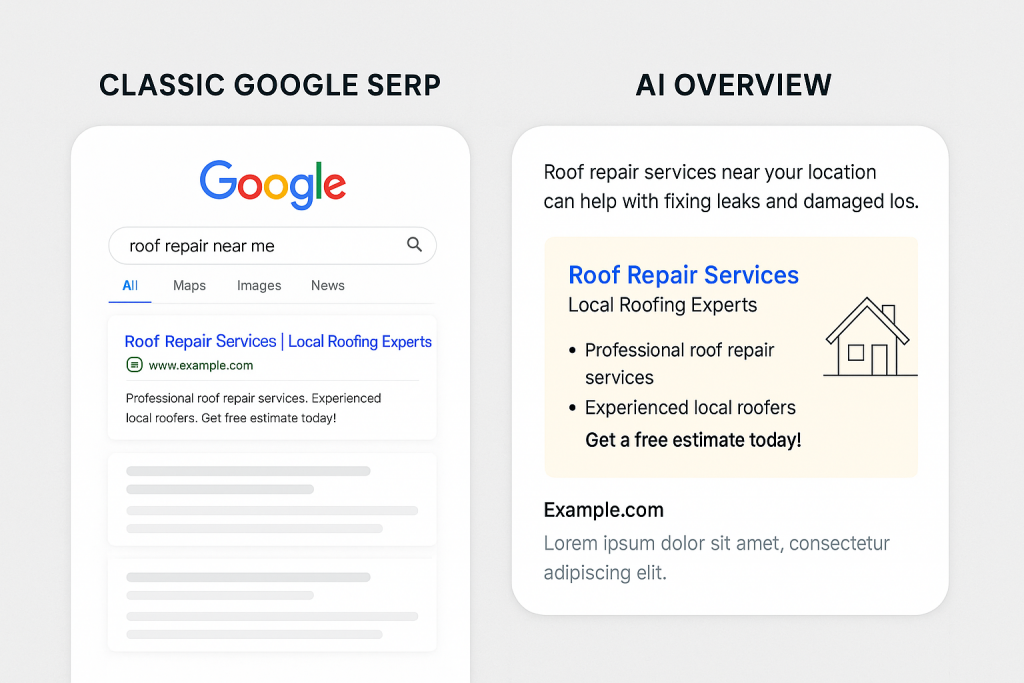
Why GEO Matters for Local PPC Advertisers
AI Overviews are now above or alongside ads in many search environments. For local businesses, this shift means:
- Traditional ad slots may shrink or be missed
- Zero-click answers reduce traffic—unless you’re in the summary
- Local trust signals (neighborhood, reviews, phone numbers) are favored when formatted properly
With GEO, your campaigns:
- Become part of the AI’s response
- Outperform slower competitors still optimizing for traditional click-throughs
- Show up in both search and voice responses
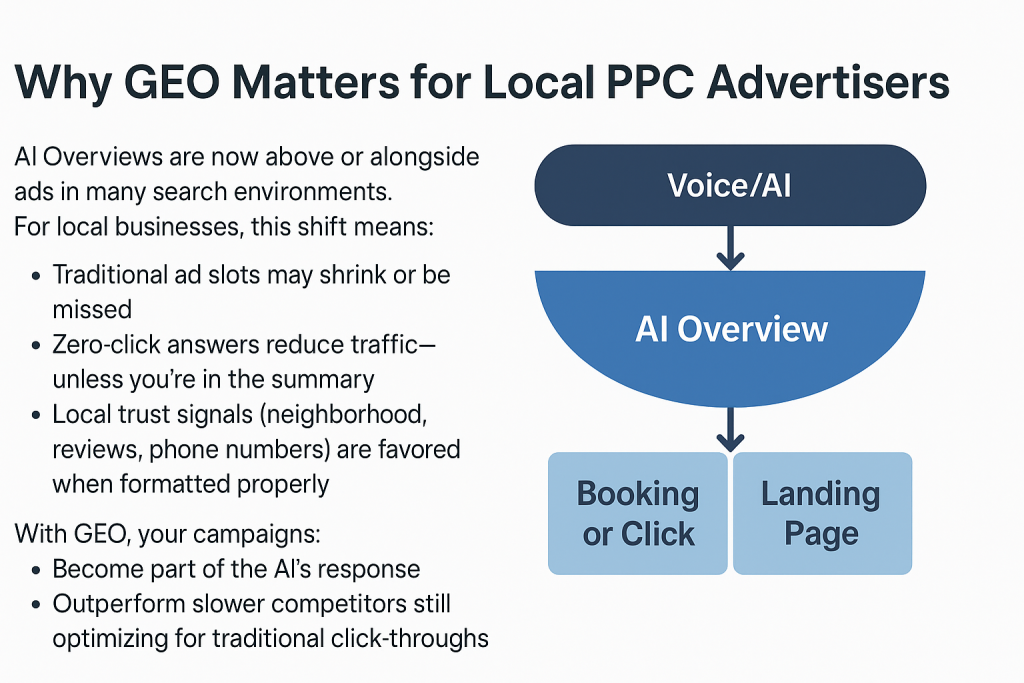
How to Structure Your Campaigns for GEO Placement
1. Match AI Query Patterns
Most AI summaries start with a question.
So should your ad copy and headlines:
- Bad: “Affordable Botox in LA”
- Good: “Where can I get affordable Botox in Los Angeles?”
Use question-answer format across:
- Headlines (H1–H3 on landing page)
- Ad headlines and descriptions
- Google Ads extensions (FAQ, sitelinks)
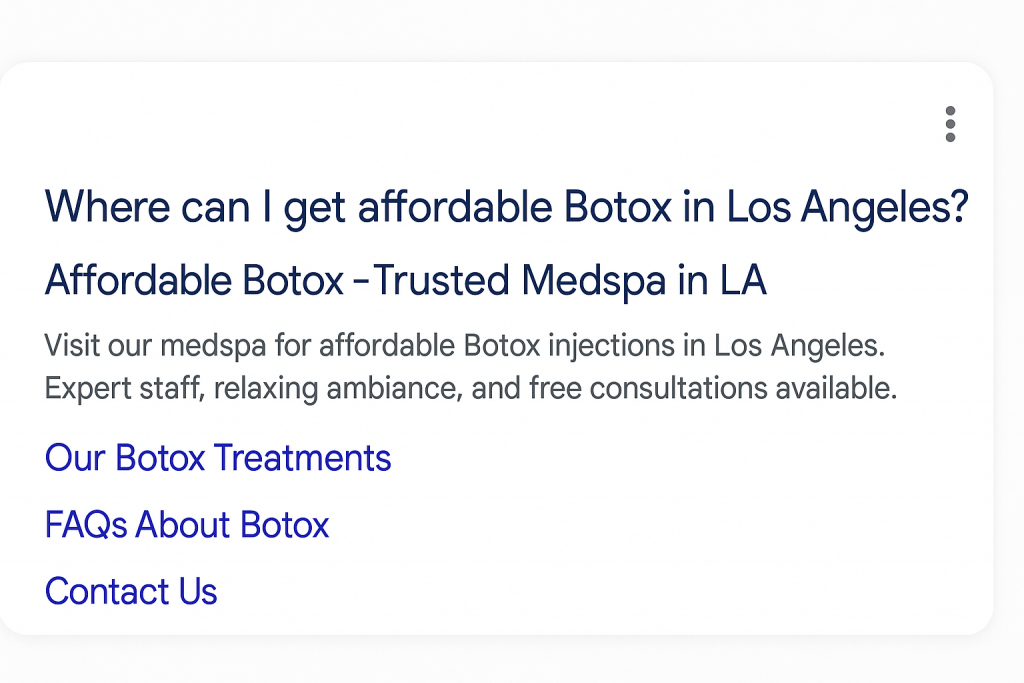
2. Use Structured Schema (Beyond SEO)
Landing pages should include:
FAQPageschema with actual customer queriesHowToschema for service walkthroughsServiceschema withareaServed,provider, andhasOfferCatalog
GEO Tip: Use hasPart to link related blog posts or sub-services. It creates “context depth” AI models favor.
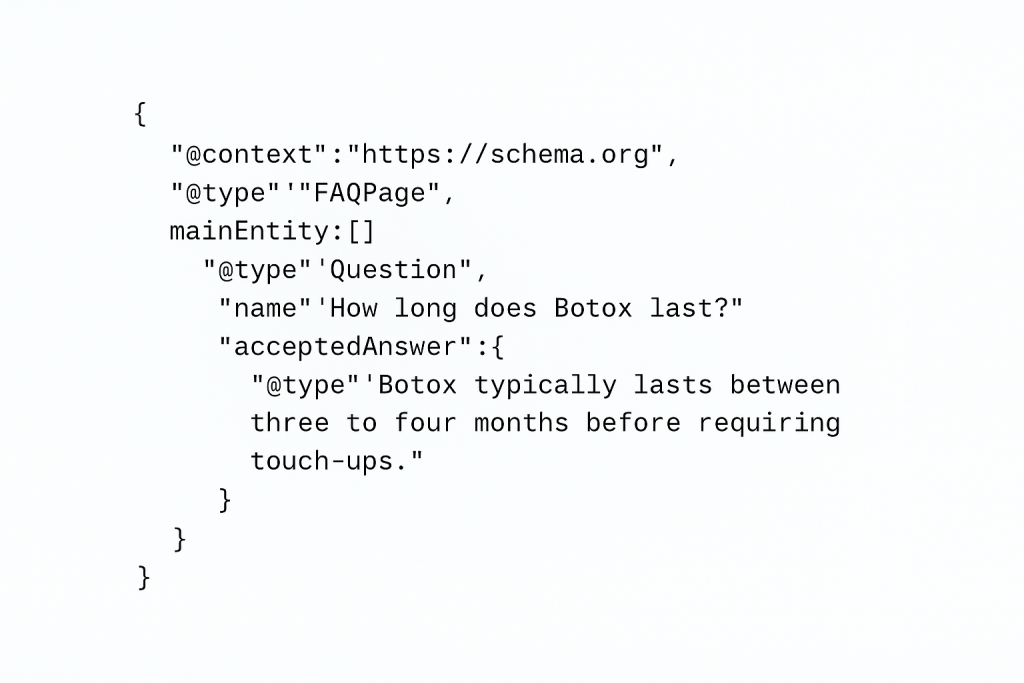
3. Optimize Copy for Language Models
AI likes factual, helpful content:
- Write in clear, concise language
- Avoid fluffy or overly salesy phrasing
- Present lists, prices, and service features in bulleted format
- Include your location multiple times using structured markup and in natural text
GEO Checklist for Local Service Businesses
Use this quick list to audit your campaign setup:
- ✅ Write ad copy in a Q&A format to match AI queries
- ✅ Include
HowTo,FAQPage, andServiceschema on all landing pages - ✅ Embed your business location in visible and structured formats (ZIP, neighborhood, service area)
- ✅ Format pricing, benefits, and legal disclaimers into bullet points for easy parsing
- ✅ Include voice-friendly phrasing like “best [service] near me” in your headings and calls-to-action
- ✅ Add trust markers like “Google Reviews,” “licensed in California,” and structured ratings markup
Bonus – Tools to Test Your AI Visibility
Want to know if your content shows up in AI results?
Try these:
- SGE Labs (Google) – Search queries with “best [service] near me”
- Bing Copilot – Use terms like “find HVAC contractor in [city]”
- ChatGPT w/ Browsing – Ask “Top-rated medspas in Santa Monica”
- Gemini Snapshot Generator – Coming soon in Google Ads UI
Conclusion: Be the First Local Business Featured in AI Answers
GEO is your new secret weapon. The earlier your PPC copy and landing pages are optimized for AI Overviews, the faster you’ll outpace competitors still chasing outdated metrics.
“It’s not about ranking #1—it’s about being the answer.”
📞 Want to know if your landing page is GEO-ready? Request a free audit now

